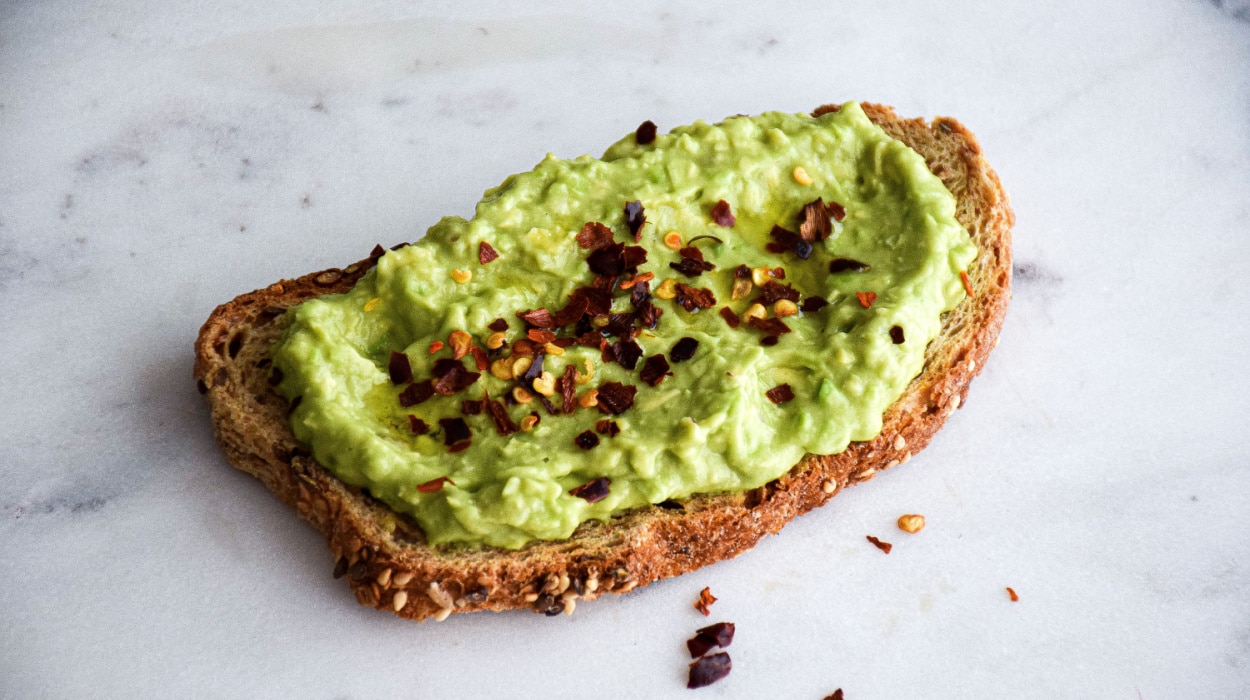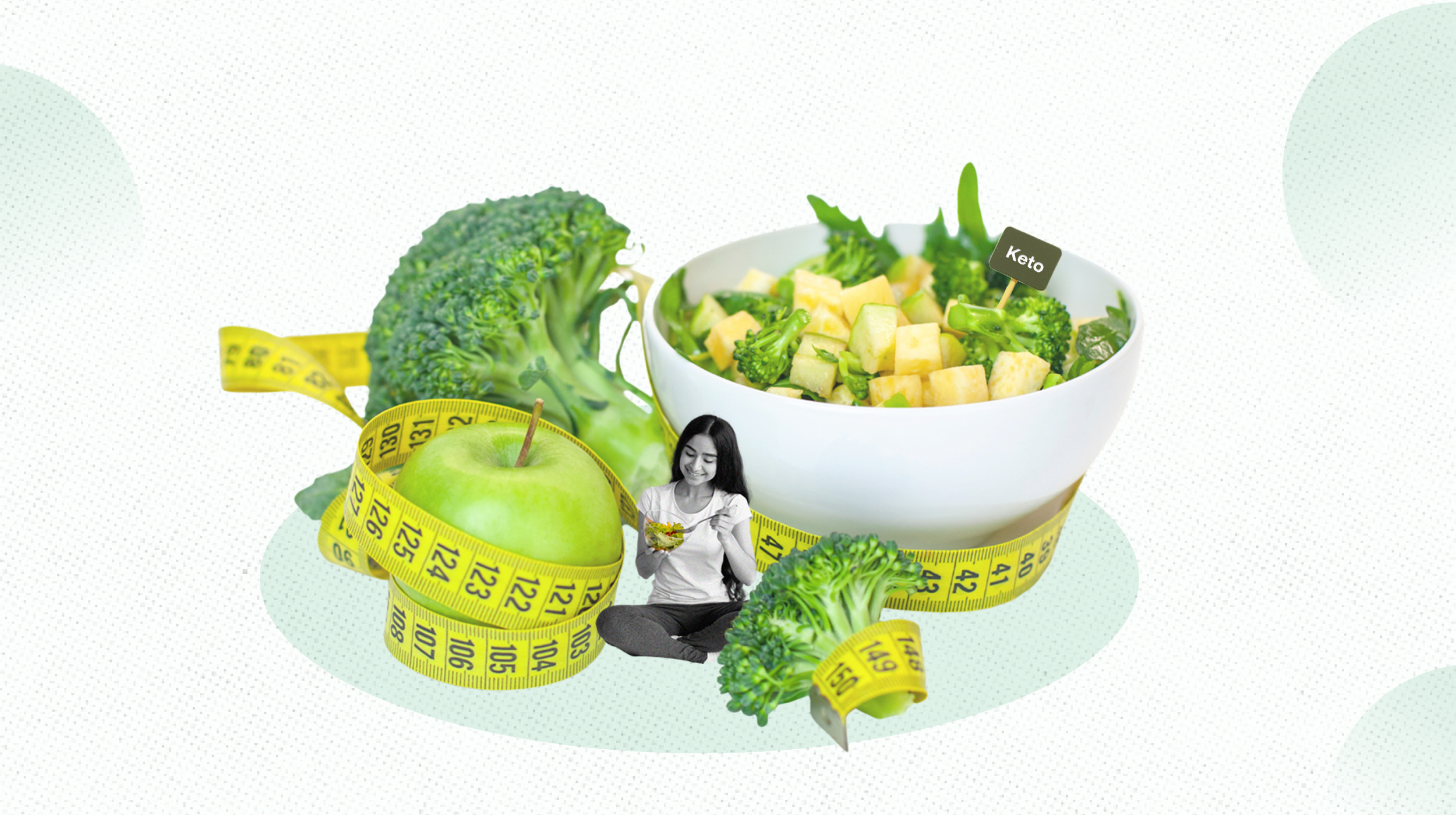Have you considered the ketogenic diet but are concerned because you are a vegetarian and much of what you’ve seen appears to be a heavier focus on meat products? Perhaps you are already eating a keto diet and are considering removing meat or animal products from your diet. A healthy vegetarian keto diet is attainable. We will discuss the health benefits and potential risks of a keto vegetarian, and some tips and recipes to improve your experience.
Keto Diet For Vegetarians
A traditional keto diet foods list will limit carb intake to 10% of daily calories. It is a high-fat diet, with 70% of calories derived from fat. The remaining 20% of calories are proteins This often leads to higher consumption of meat and animal products. A vegetarian keto diet relies more heavily on healthy fats by including foods like avocados, coconut oil, eggs (for non-vegan vegetarians), seeds, and nuts.
This approach is not for everyone. There can be health benefits but also challenges and risks to be aware of. We will discuss these in more detail!
Vegetarian Keto Diet: Pros & Cons
Pros
Lose Weight Quickly
A low-carb diet seems to have a greater effect on weight loss[1] than a low-fat diet. Keto diets have been associated with significant, sometimes rapid weight loss. It is worth noting that some of this initial loss has been attributed to “water weight,” and adherence to the diet can be challenging. This leads to mixed longer-term results when studied.
Routine checkups with your doctor are also essential. Rapid weight loss may be appropriate for some people, but it is generally recommended to lose no more than 1-2 pounds per week.[2] This helps ensure a healthy balance is maintained and is more sustainable long term.
Opportunity To Focus On Healthier Fats

A primary concern associated with keto dieting is the potential for increased LDL cholesterol. This form of cholesterol is a predictor for a higher risk of cardiovascular disease, such as heart attack or stroke.
A vegetarian keto diet offers the chance to focus on reducing the intake of saturated fats. Higher levels of these fats can enter the diet when eating meat. Focusing on healthy oils and plant-based protein allows for higher unsaturated, or healthy fat content.
Studies are limited when considering specific variations of the keto diet, so continued monitoring of labs by a healthcare provider is needed. However, increases in LDL cholesterol are less likely when saturated fats are limited.
Blood Sugar Control
Improved blood glucose control[3] has been demonstrated with the keto diet, which is a natural result of the limitations placed on net carbs. This may be particularly helpful for patients who would benefit from losing weight, are prediabetic, or are not insulin-dependent. Low-carb diets are a potentially dangerous choice specifically for Type 1 diabetics, or for patients who are using insulin or another medication carrying a risk of hypoglycemia (low blood sugar).
Cons
Keto Flu

“Keto flu” refers to a collection of symptoms keto dieters experience, most commonly during an initial adjustment period. These symptoms include:
- Nausea and vomiting
- Headache
- Fatigue
- Dizziness
- Insomnia
- Constipation
Some of these symptoms overlap with signs of hypoglycemia (low blood sugar), so diabetics need to ensure their blood glucose has not dropped below 72mg/dL!
Staying hydrated and including plenty of fiber (either from supplements or low-carb veggies) can help prevent these symptoms or shorten their duration.
Restrictions Are Not Suitable For Some Patients
Patients with diabetes or other chronic health conditions should be very cautious and consult a healthcare provider before starting a restrictive diet. These restrictions may create deficits in key nutrients needed to help manage your health.
Children, adolescents, and individuals who are pregnant or breastfeeding should avoid restrictive diets due to the potentially harmful effects on growth and development caused by nutrient deficits.
Nutrient Deficiencies
A primary concern for people following a keto vegetarian diet is the potential for nutrient deficiencies. Both the ketogenic diet and vegetarian diet carry risks of nutrient deficiencies individually. When combining the two approaches careful planning and consideration of supplement use are needed.
Nutritional deficiencies associated with a keto diet:
- Calcium (1,000-1,200mg recommended daily)
- Vitamin D (400-1,000 IU daily – 2,000 IU is also commonly recommended)
- Phosphorus[4] (700mg recommended daily for adults aged 19 or older)
- Magnesium[5] (310-320 mg for females and 400-420 for males aged 19 or older)
Calcium, vitamin D, phosphorus, and magnesium are involved in the formation and maintenance of bones. Deficiencies of these nutrients can lead to a loss of bone mineral density and the potential of an increased risk of bone fracture. These nutrients are also involved in many other crucial processes throughout the body.
Nutritional Deficiencies Associated With A Vegetarian Diet:
- Vitamin B12,[6] or Cobalamin (2.4mcg recommended daily for adults aged 19 or older)
- Iron[7] (18mg for females, 8mg for males aged 19 or older)
- Zinc[8] (8mg for females, 11mg for males aged 19 or older)
- Calcium and Vitamin D
Similar to a low-carb diet, vegetarian diets can lead to potential deficits of calcium and vitamin D. Removal of animal protein can affect the availability of iron and vitamin B12, essential nutrients for the formation of red blood cells. Both of these deficiencies can lead to different types of anemia. Zinc is instrumental in your body’s immune system. Deficits can lower your body’s ability to fight off an infection.
When planning a vegetarian ketogenic diet it is essential to ensure these nutrients are considered. Supplementation may benefit many people to ensure their diet remains healthy and safe.
Keto For Vegetarians: Safety Tips
Consider A Supplement
Eating nutrient-dense foods can help, but the restrictive nature of a vegetarian keto diet can still lead to some gaps in essential nutrients. Adding individual supplements, or some of the best multivitamins for the keto diet can help offset some of these potential deficits.
Stay Hydrated
Staying hydrated helps reduce some potential symptoms of starting a vegetarian keto diet known as keto flu. It can also help prevent the formation of kidney stones,[9] which have been observed at a higher rate in keto dieters. Particularly for patients with a history of kidney stones, using potassium citrate has helped alkalinize the urine and reduce the risk of stone formation.
Focus On Healthy Fats
A plant-based diet has a natural tendency to limit the risks of cardiovascular disease. Healthy fats are essential to a vegetarian or vegan keto diet as they keep the risks of heart attack and stroke low. Ensuring adequate healthy fat intake will also help prevent the formation of gallstones, which have been associated with rapid weight loss.
Vegetarian Keto Diet Recipes
There are many delicious vegetarian keto recipes] available, providing plenty of variety. Ranging from simple sautéed vegetables to approximations of mac and cheese using cauliflower, there are recipes for every taste (and craving).
Vegetarian Keto Frittatas
Ingredients:
- 8.8 ounces Spinach (chopped)
- 5 eggs
- 2 tomatoes (diced)
- 1 ½ cups cheddar cheese (grated)
- 1 tbsp olive oil (grease the tray)
- Garlic powder, nutmeg, onion powder, basil, oregano to taste, and a pinch of salt and pepper
Directions:
- Pre-heat the oven to 400 degrees F
- Beat the eggs in a large bowl
- Add spices
- Add grated cheddar cheese and spinach, and stir to mix
- Pour mixture into greased muffin tin slots
- Place in the oven to cook for 20 minutes or until the top sets
- Enjoy!
Vegan Cauliflower Fried Rice (Customizable)
Ingredients:
- Riced Cauliflower (grate florets or purchase pre-riced)
- Neutral cooking oil, such as olive oil or avocado oil
- Vegetables – onion, carrots, bell peppers, etc. Traditionally fried rice is prepared with extras on hand (track or limit quantities of starchy vegetables)
- Garlic and ginger (freshly minced for improved flavor)
- Soy sauce or tamari (gluten-free)
- Sesame oil (strong flavor, sometimes skipped per preference)
Directions:
- Sautée vegetables over medium heat in oil for 5-8 min until soft
- Mix in garlic and ginger. Stir frequently for 30-60 seconds
- Add cauliflower rice, mix thoroughly, and cover for 5 minutes
- Remove from heat, add soy sauce or tamari and sesame oil if desired
- Ready to serve and enjoy!
Conclusion
When many people think of “eating keto,” they immediately associate it with a meat-based diet. This does not have to be the case! A vegetarian keto diet offers a variety of benefits, but should also be followed carefully to manage potential nutrient deficiencies. If you have concerns or questions about health risks, consulting your healthcare provider can help you gain confidence and ensure the diet is followed safely.
 Expert's opinion
Expert's opinion
